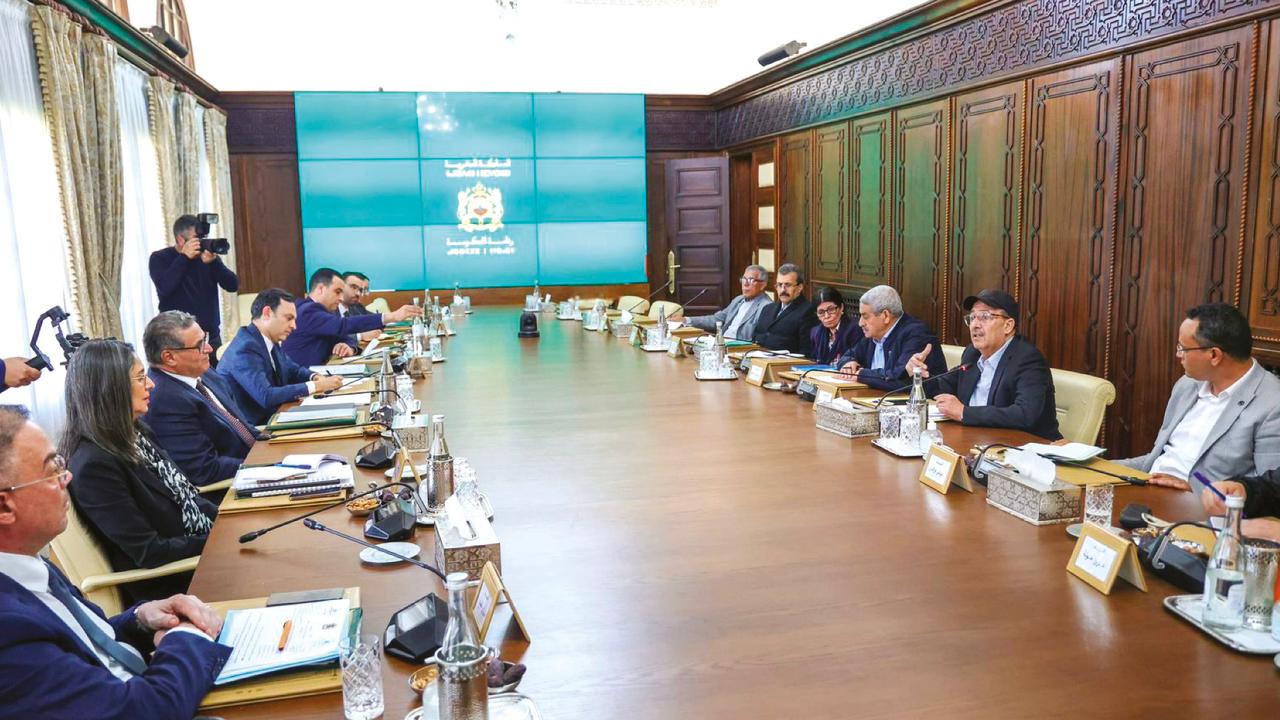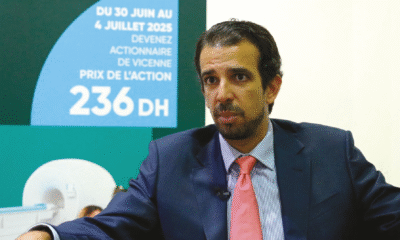Kingdom
On the Virtues of Social Dialogue
Besides the achievements, the government emphasizes its determination to continue in the same logic it has followed since its installation. First, to ensure the completion of the commitments made, then to devote all necessary attention to the ongoing projects. With the watchword: the participatory approach.

Contrary to what some ill-intentioned voices claim, social dialogue is indeed bearing fruit in favor of both the working class and state employees, as well as private sector workers. The outcomes of the April session of social dialogue demonstrate this.
Indeed, following meetings with the most representative unions (the CGEM and the Moroccan Confederation of Agriculture and Rural Development), chaired by the Head of Government, Aziz Akhannouch, the Executive has committed, as part of implementing its commitments, to «ontinue improving» incomes in the public sector by proceeding with the payment, starting next July, of the second tranche of the general salary increase for civil servants. And it must be said that this is no small matter, since it involves no less than 500 dirhams.
Private sector employees will not be left behind, as there will be a 5% upward revision of the guaranteed minimum wage in both non-agricultural and agricultural activities. And this is not an empty promise.
Indeed, this increase will take effect respectively on January 1 and April 1, 2026, with the objective, in response to the demands of the trade union centers, of moving towards the progressive unification of the guaranteed minimum wage by 2028, through the study of means and measures likely to enable the implementation of this commitment. Another subject, and not the least, relates to what the unions call «category files».
In particular, that of local government civil servants. On this front, it was agreed that the Ministry of the Interior and the concerned unions will «continue discussions regarding the special status of these civil servants». The goal is to reach adequate solutions to the outstanding issues related to this status.
And this concerns quite a few people, given that the file covers some 84,000 civil servants. And it is not being postponed indefinitely. Indeed, a new meeting between the Ministry of the Interior and the unions is scheduled in this regard on May 13.
Participatory Approach
In the same vein, the government has also committed to opening the debate concerning the revision of the special statutes of certain bodies, including engineers, administrators, technicians, labor inspectors… with the objective of improving working conditions for these categories. A commitment that satisfies a long-standing demand of the unions, but which has never previously found a favorable response.
And that’s not all. Indeed, faithful to its participatory motto, consultation frameworks are expected regarding labor legislation, notably those relating to trade union organizations and amendments to the Labor Code. On this front, the government has committed to setting up specialized commissions including representatives of all partners, which will work on drafting consensual versions of these texts, meeting the expectations of social and economic partners.
Contrary to what some observers claimed, the reform file was indeed on the agenda of the April session of social dialogue. It is learned, in fact, that this session was «an opportunity to engage in responsible dialogue around the reform of pension schemes».
In the end, social and economic partners agreed to create a national commission for the reform of pension schemes. Here is another response to a pressing demand of the trade union centers. In the same spirit, the government indicates that this commission will aim to establish «a consensual vision of the reform»,while taking into account «the fundamental principles agreed upon within the framework of the social agreement of April 2024».
However, these commitments clearly show that when the government commits, it means to fulfill its commitments. Moreover, it is enough to look in the rearview mirror to realize, much to the displeasure of some, that all social partners, in a constructive spirit, are indeed advancing on the path to implementing two social agreements concluded in April 2022 and April 2024. On this point, the April 2025 dialogue session precisely allowed a review of the achievements made.
Notably concerning the revaluation of salaries, whether for the public or private sector. And this, «thanks to the combined efforts of all the concerned partners and their positive involvement in implementing the results of social agreements», the government is keen to remind.
This is the other virtue of an Executive that recognizes, by highlighting it, the contribution of all social partners towards income revaluation and its corollary, the improvement of the purchasing power of the working class, without losing sight of strengthening its social protection.
That said, without falling into any posture of having accomplished the task, the government, together with social partners, is already projecting itself into outlining the contours of the next stage which promises many advances on the various challenges they will have to face together.
This next stage should be devoted to completing the implementation of social agreements. And the government, aware that institutionalizing social dialogue depends on the regularity of sectoral dialogue, is determined to move forward in this direction.
Moreover, all departments are invited to continue this dynamic with social and economic partners with a view to reaching efficient and feasible solutions to the issues at hand, so as to meet the aspirations of workers.
It is in this sense that a circular from the Head of Government, who will oversee the follow-up of the results of these sectoral dialogues, will be distributed to the concerned sectors.
Undeniable Achievements
Unless one is myopic or acting in bad faith, social dialogue has enabled many achievements. Especially since the Executive has ensured, through sectoral dialogues, the implementation of a series of measures that have improved civil servants’ incomes.
Including those in the National Education sector for a total cost of 17 billion dirhams, or civil servants in Higher Education with a budget envelope of 2 billion dirhams, not forgetting those in the Health sector for a cost of about 3.5 billion dirhams.
As a result, these measures, with a total cost of 45.7 billion dirhams, will allow, by 2026, the average net monthly salary in the public sector to reach 10,100 dirhams. The difference is quite significant, knowing that this average was only 8,237 dirhams when the government took office in 2021.













